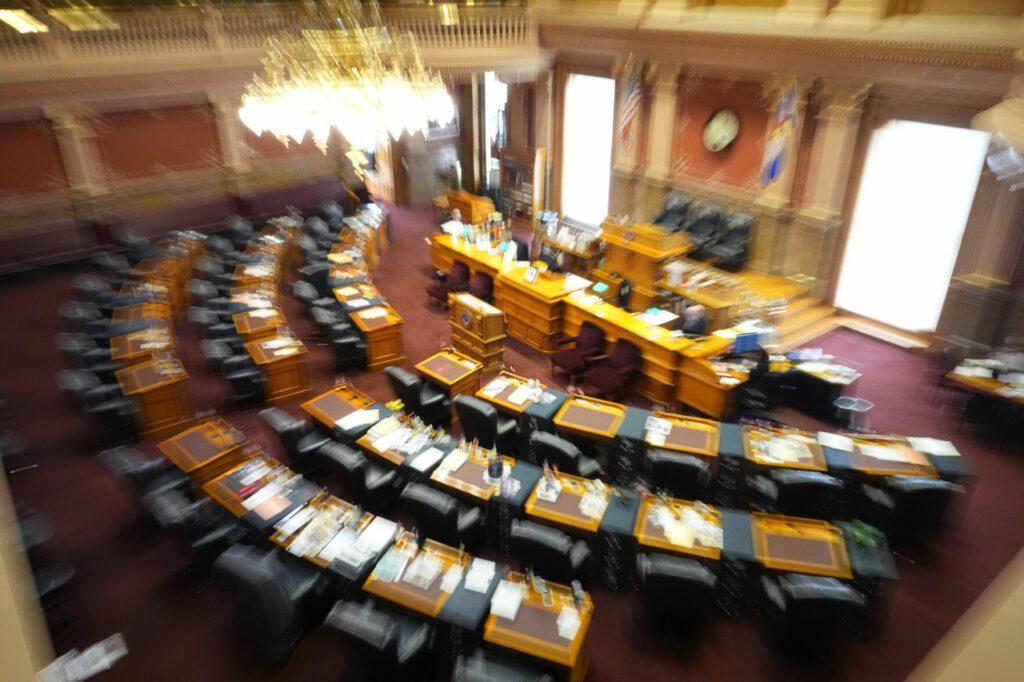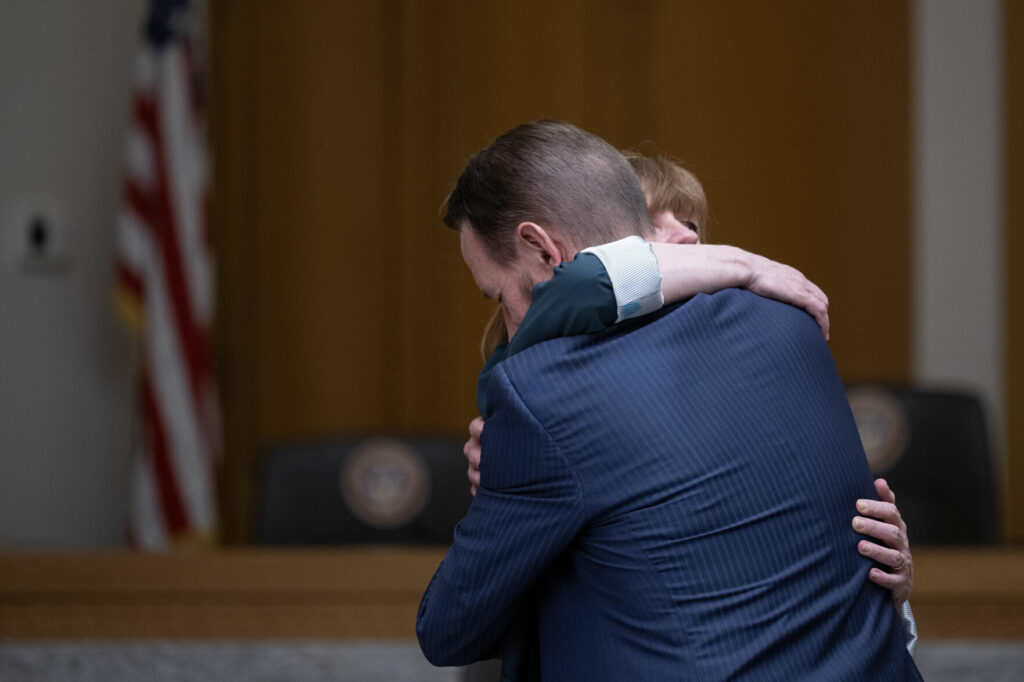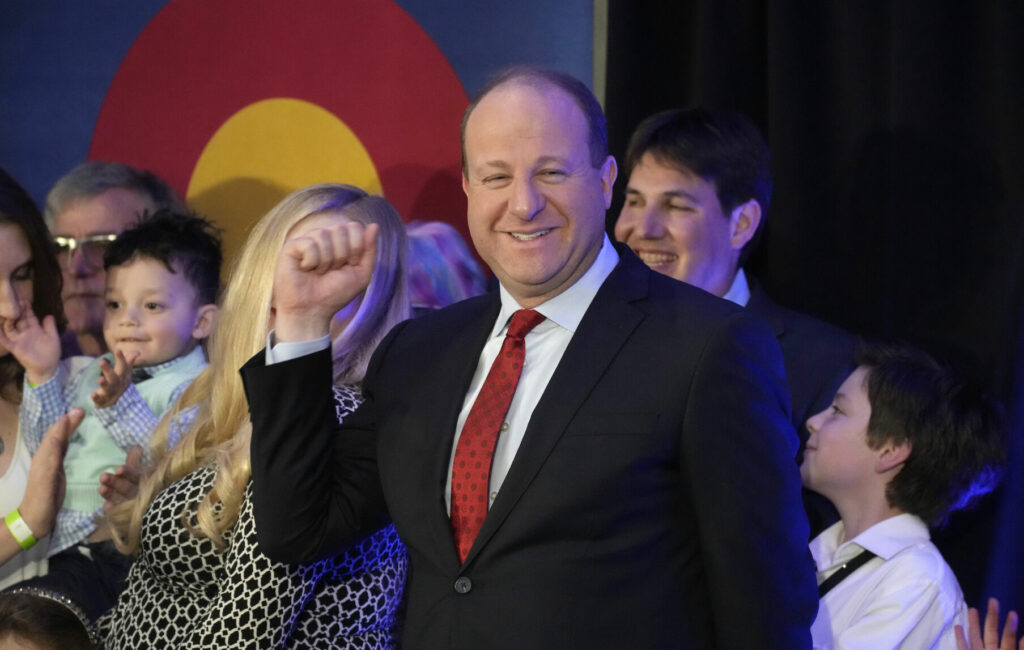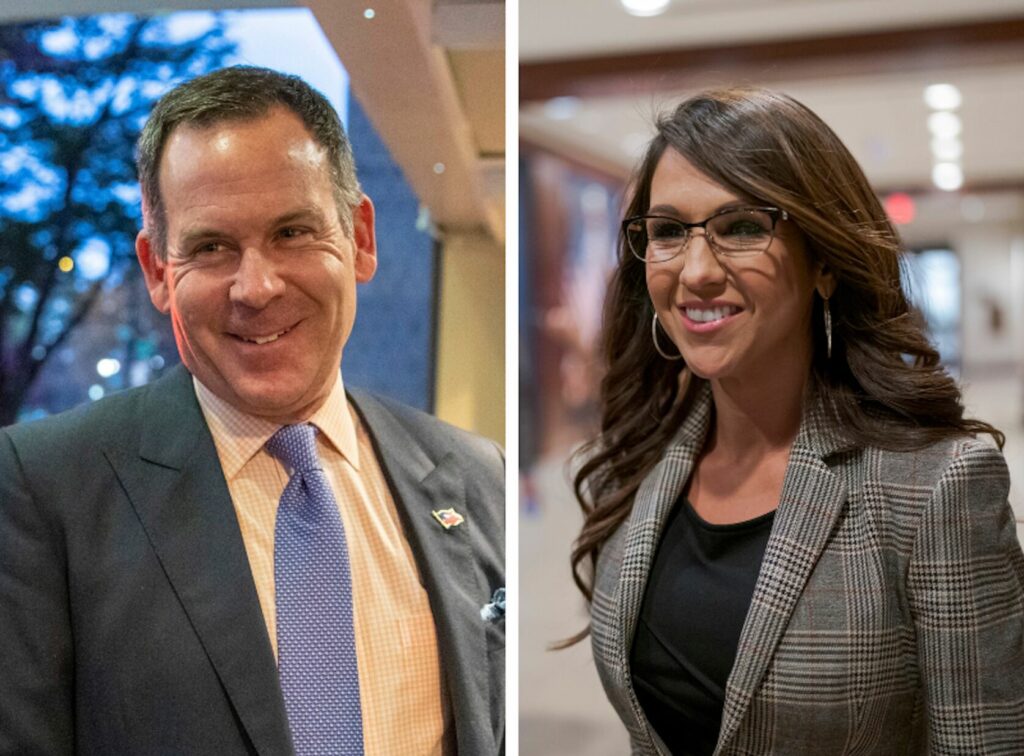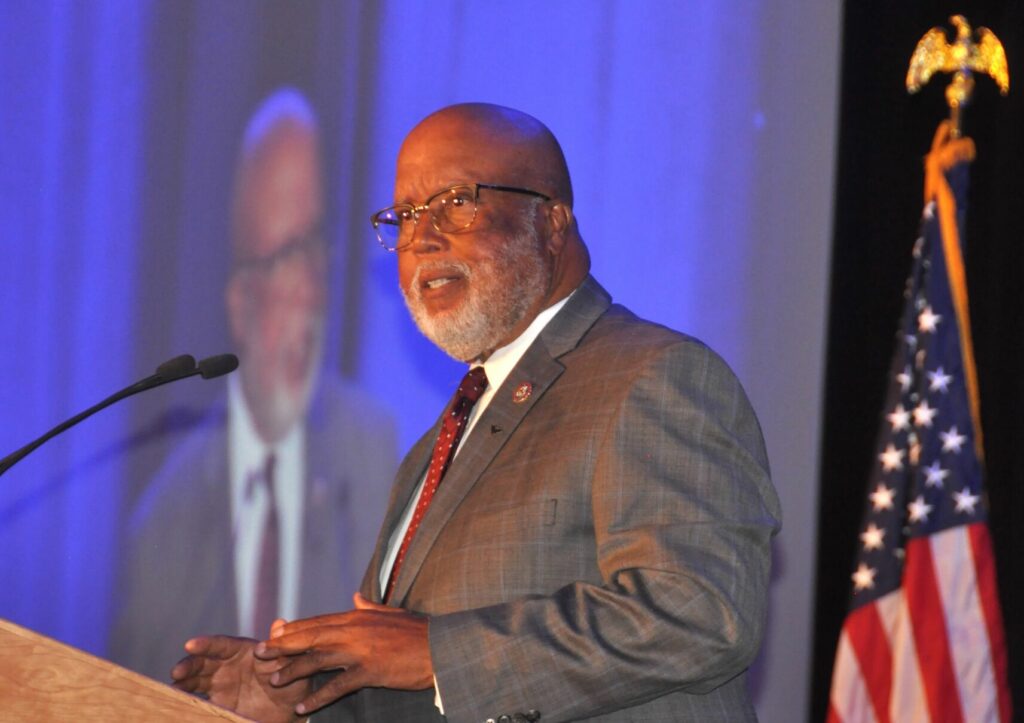Young and left-leaning: Poll hints at how Denver’s newest residents could shape city politics for years to come | ANALYSIS
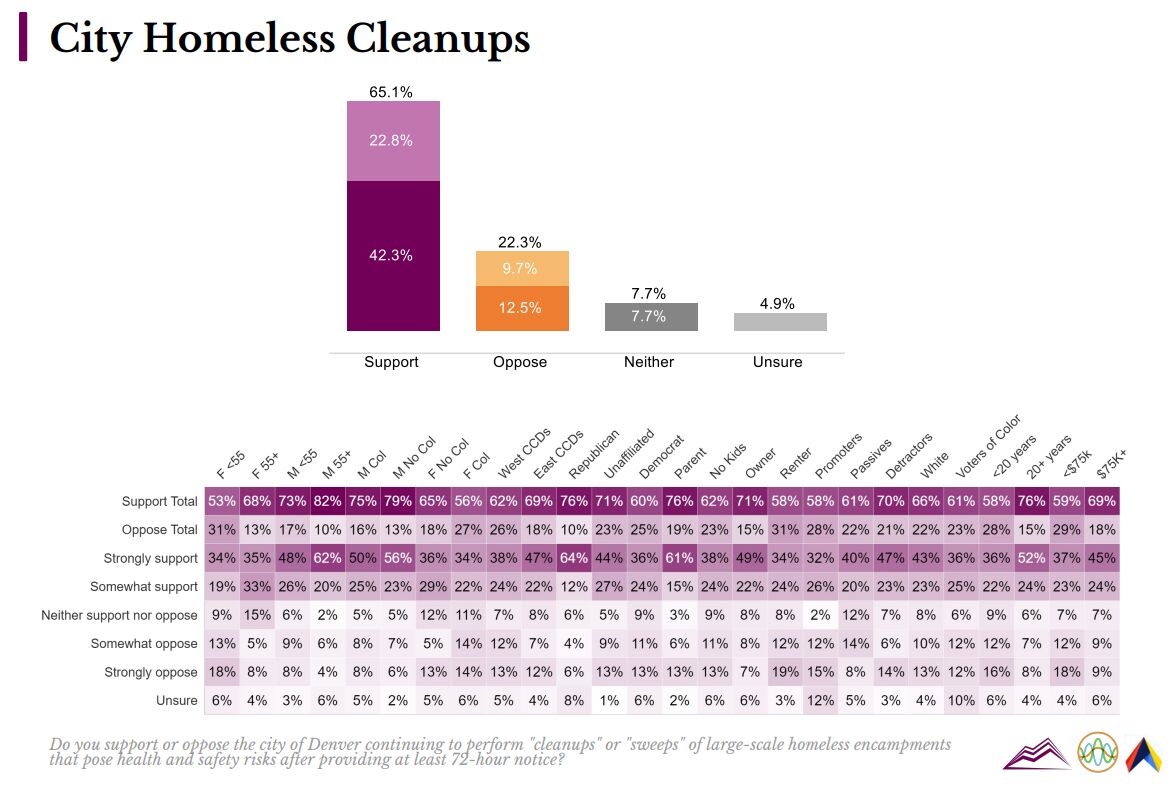
A recent poll highlighted the ideological underpinnings at work in the city of Denver, most notably how a group of young residents with socialist views stridently oppose some strategies that the overwhelming majority of voters support.
In particular, the poll – conducted by Republican and Democrat pollsters – strongly hints of the philosophical push and pull that Mike Johnston, Denver’s new mayor, will need to contend with in the next four years as he seeks solutions to the city’s most pressing issues.
To some extent, the survey, conducted last month, also confirmed what Colorado’s longtime political observers postulated: Colorado has now entered what, for all intents and purpose, is a new era of Democratic dominance in which the party’s progressive and not-as-progressive wings will decide the biggest policy battles, while conservatives will watch the intraparty feud unfold from the sidelines.
Atop those issues sits homelessness, which soared in metro Denver in the last several years. Denver has been pouring significant resources into tackling the crisis, spending $152 million in 2022 and authorizing $254 million in 2023. But the crisis shows no signs of abating. The city this year year saw an 8% increase in the number of homeless people who sleep in public places, based on the most recent point-in-time count.
The poll from the Colorado Polling Institute noted that homelessness is the “clear priority” for most voters and the “top priority across most groups,” with some notable exceptions. The results aligned with previous polls – including a survey The Denver Gazette and its partners commissioned during the election for city mayor – showing that homelessness, along with crime and affordable housing, preoccupy the minds of Denver residents.
But the latest poll also waded into who, exactly, supports which policy prescription.
Notably, respondents “overwhelmingly” support encampment cleanups: 65% back the sweeps, 22% oppose them.
“The only groups who oppose continuing sweeps are voters ages 18-29 and socialists,” the poll’s memo said.
It’s one of the key insights that Republican pollsters Brent Buchanan of Cygnal and Democrat Kevin Ingham of Aspect Strategic offered on Friday, when they dug into the data explaining the attitudes of likely Denver voters on top issues.
Buchanan said the city is broadly divided into three ideological buckets: About a third are people who are a “little conservative” – Buchanan clarified he means “Denver conservative,” not “U.S. conservative” – while the Democratic base makes up the rest. The latter is split between a slightly older cohort and a younger, liberal group.
Buchanan described the former as “liberal, but a little less liberal” and who are also more mixed in their educational attainment.
The younger cohort, he said, is “very progressive, super highly educated and much more likely to have been fairly recent in coming to the city.”
“And this question,” Buchanan said, referring to the encampment cleanup, “probably divides them more than any of the others that we asked in the survey.”
In particular, the slightly older Democratic base “very strongly” favor the sweeps.
That younger cohort, however, is evenly split on the question.
“That was one of the most unique things that stuck out to me,” Buchanan said.
Under Denver’s camping ban, which the council approved and then-Mayor Michael Hancock signed into law in 2012, anything “not considered a safe outdoor space” or other sanctioned encampment is “unauthorized.” That prohibition applies to residing or dwelling temporarily on public or private property, unless a person has the owner’s permission. The ordinance also prohibits people from blocking streets or other public passageways in ways that make them impassable or hazardous.
Johnston’s administration has already conducted two sweeps, the first for rat infestation and the second following a shooting that injured two homeless people in the encampment.
The criticism of the sweeps has so far been muted, but some, such as Denver activist Tim Hernández, called them “degrading.”
“I was going to keep my mouth shut about Mayor Johnston’s first sweep of our unhoused neighbors this week, but I can’t,” Hernández wrote on the platform formerly known as Twitter on Aug. 4. “Sweeps are inhumane. There exists no ‘compassion’ in degrading people in need of housing a government CAN provide for us by forcefully disappearing us instead.”
Hernández, 26, is a teacher at Aurora West College Preparatory Academy. He belongs to the group of young Denver Democrats that the poll noted is stridently opposed to encampment cleanups.
About one of five in that cluster identifies as socialist, the pollsters said, the pollsters said, in response to a question asking respondents to choose their ideology.
Hernández does not describe himself as a “socialist” on X – he identifies as an abolitionist and organizer – but his views represent the progressive wing of the Democratic party. When the Colorado Education Association adopted an anti-capitalist polemic at its 97th Annual Delegate Assembly in April, for example, Hernandez said the teachers’ union “may now publicly advocate & lobby for anti-capitalist policies at the CO Capitol.”
The union’s resolution states that “capitalism inherently exploits children, public schools, land, labor, and resources” and that “capitalism is in opposition to fully addressing systemic racism (the school to prison pipeline), climate change, patriarchy (gender and LGBTQ disparities), education inequality, and income inequality.”
Hernández has secured a bigger platform since criticizing Johnston’s first homeless encampment cleanup. On Aug. 26, Denver Democrats selected him to represent House District 4 to replace Serena Gonzales-Gutierrez, who resigned from the Colorado General Assembly to join the Denver City Council. Hernández won the vacancy election over two opponents in a single round of voting.
In an interview with Colorado Politics, Hernández articulated the ethos fueling his campaign for the legislature – and it hews to the progressive category the Colorado Polling Institute survey outlined.
“I view my role as continuing to push progressive values from a place of lived experience,” Hernández said. “I’ll be the only person in the state legislature who is a Latino teacher, when Latino kids make up the majority of our public schools in Denver, in Aurora. That means I’m not just speaking for myself, I’m speaking for a generation of students, a generation of people.”
Political observers deduced long ago that Colorado’s changing political climate can be traced to an influx of college-educated voters in the Denver metropolitan area.
Dick Wadhams, a former Colorado Republican state chairman and veteran campaign manager, said the tens of thousands who moved to Colorado within the last decade and registered as unaffiliated are “really liberal Democrats.”
The poll’s findings appear to confirm that.
Consider this: Nearly 63% of respondents back the move to return school resource officers to schools, the poll showed, adding that support manifested across partisan and other demographic lines.
But Buchanan noted a clear dividing factor based on people’s educational attainment level. In particular, the higher the educational level is, the less likely a person is supportive of the cops’ return, he said.
That didn’t surprise the pollster, who said that, in the last 20 years, educational attainment has become the No. 1 factor on ideology, partisanship and polarization.
“The biggest thing that sticks is educational attainment,” he said. “And this younger group of folks in Denver, who are newer to the city, who are almost 80% college educational attainment or higher, just have a very different outlook.”
He added: “I mean 21% of that group claim that they were socialist. As a Republican, I would consider that beyond progressive to claim to be a socialist.”








